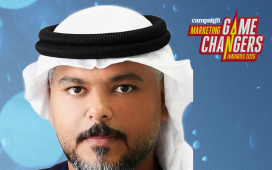Years in role: 1 | Years in company: 11
‘Shift’ is my favourite word right now. There’s a sense of energy, movement, thrill even, in the word that you don’t find in ‘recovery’ or ‘rebound’. We’ve all been waiting for that moment when we can claim victory over the past 18 months. If that triumph isn’t yet fully complete, many organisations have indeed celebrated a return to pre-Covid levels. This doesn’t mean it’s a return to the same previous position, though.
The positive signs are everywhere. Oil prices are returning to pre-Covid levels as rising business activity boosts demand. The rise in GDP in the Middle East this year is expected to more than offset the 20
To continue reading this article you need to be registered with Campaign. Registration is free and only takes a minute. Register Now or sign in below if you already have an account.









